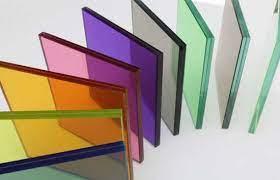Optical systems rely heavily on precision, but many performance failures are traced back to one overlooked component—filter glass. A poor-quality or mismatched filter glass can distort results, reduce system efficiency, and even damage sensitive instruments. Engineers and researchers who underestimate this factor often face costly setbacks in their projects.
Common Problems Caused by Wrong Filter Glass
Using an incorrect filter creates multiple technical and operational issues:
-
Unwanted light leakage → reduces accuracy in imaging and sensing.
-
Lower transmission efficiency → weakens signal strength.
-
Thermal instability → may cause cracks under high-power light sources.
-
Misaligned wavelength blocking → produces incorrect test or imaging results.
These failures directly impact industries such as medical diagnostics, laser technology, and scientific research.
Why High-Quality Filter Glass Is Essential
Precision-made filter glass ensures stable and reliable performance in critical systems. Key benefits include:
-
Accurate wavelength control for lasers, sensors, and microscopes.
-
High thermal resistance to withstand demanding light sources.
-
Durable coatings that protect against scratches and moisture.
-
Optimized transmission for clear, distortion-free results.
By focusing on these qualities, users can avoid costly errors and extend equipment lifespan.
Industries That Suffer Most from Poor Filters
Not all applications can afford mistakes. In fields like:
-
Medical imaging → incorrect filtering can lead to misdiagnosis.
-
Industrial laser cutting → wrong glass may cause uneven results.
-
Astronomy and research → false readings damage data accuracy.
-
Photography and optics → reduced color accuracy lowers image quality.
These examples prove how critical the right filter choice is across industries.
How to Select the Right Filter Glass
Choosing the right filter requires careful consideration of several factors:
-
Wavelength range to match the application.
-
Optical density (OD) for proper blocking performance.
-
Material durability to resist heat and wear.
-
Coating type for specific environmental or technical needs.
Reliable suppliers offer a wide range of filter glass options designed to meet these requirements.
Conclusion
In optical systems, every detail counts—and filter glass is no exception. Using the wrong filter introduces risks such as inaccurate results, wasted energy, and potential damage to sensitive devices. High-quality filter glass ensures clarity, stability, and consistent performance, making it a must-have for professionals in optics, research, and technology. The smarter the filter choice, the better the system reliability.

